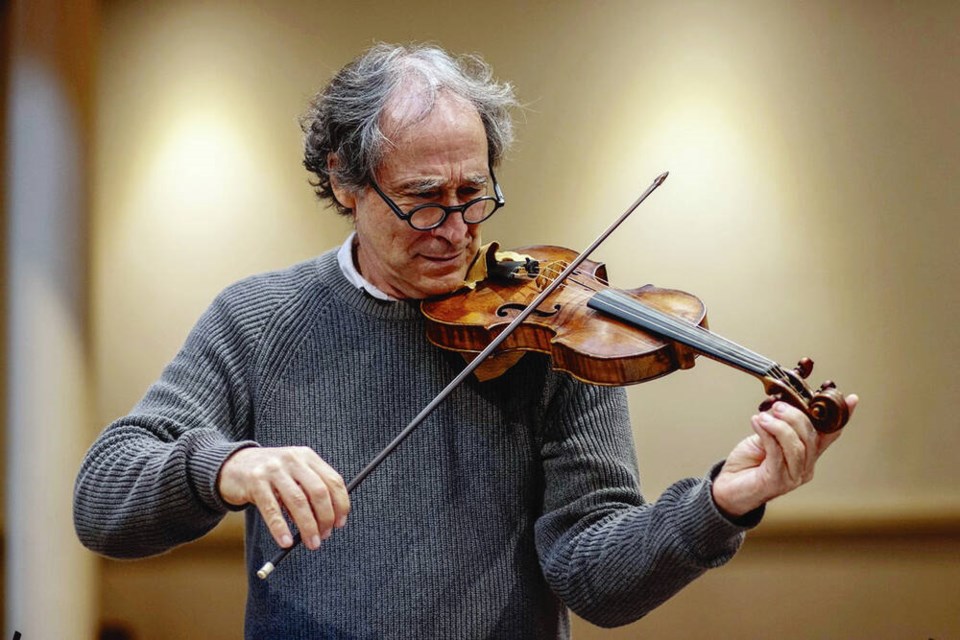PACIFIC BAROQUE FESTIVAL
Where: Christ Church Cathedral (930 Burdett Ave.) and Alix Goolden Performance Hall (907 Pandora Ave.)
When: Wednesday, Feb. 15, though Sunday, Feb. 19
Tickets: $30-$100 from showpass.com or 250-386-5311
Not every edition of the Pacific Baroque Festival has programming with thematic elements, despite the best efforts of longtime artistic director Marc Destrubé. There’s only so much one can do with music limited to the 17th and 18th centuries.
Still, Destrubé does his best each year to put music from hundreds of years ago into a modern perspective. “We want to find an over-arching theme or motive for each festival, which gives us the opportunity to dig deeper into either the music of one place or the music of one time, or music by one composer,” he said.
“It’s an opportunity both for us as musicians and the audience to delve into a world of musicmaking from a given place or time.”
The Vancouver-based violinist, who has been at the helm of the music festival for more than a decade-and-a-half, settled on Music For Distracted Times as a theme this year. And the hook for the upcoming five-day edition, which begins tonight, is an eerily relevant one. The festival is showcasing music from a time in history that also saw an extended period of disruption following the execution of King Charles I on Feb. 14, 1649.
“Music For Distracted Times is the title of a piece that was written when all cultural activity ground to a halt and essentially went underground. In 1660, when Charles II came back to the throne, cultural life came back. Theatres that had shuttered in the in between re-opened, and there was an explosion of cultural activity. That’s comparable to our own time and what we’ve gone through.”
The underlying message is quite revelatory, according to Destrubé. The festival gives audiences an opportunity to use the past as a post-pandemic reference point, in many ways.
“One of the great things about music is that it can express what we can’t express in words, the mixed feelings and double-expressions. Music does that very beautifully, from high drama to deep sadness to absolute unbridled joy.”
Baroque music remains popular, in part because it showcases unique instruments of the period — harpsichord, viola da gamba, theorbo — not often seen in other classical music performances. Compared with larger symphony orchestras, baroque music also requires fewer musicians on stage, so Destrubé could be flexible within a single night.
“In some cases, we’ve got 10 pieces on a program, all with different instrumentation, so my major task is making sure everything gets rehearsed sufficiently.”
The festival runs through Sunday at the Christ Church Cathedral and Alix Goolden Performance Hall, and features music by Antonio Vivaldi, Carl Friedrich Abel, Thomas Tomkins, Nicola Matteis, George Frideric Handel and Henry Purcell, among more than a dozen others. Destrubé (violin) will join musicians Arwen Myers (soprano), Kathryn Wiebe (violin), Eva Lymenstull (viola da gamba), Lucas Harris (theorbo), Mark McDonald (organ), Natalie Mackie (viola da gamba), and Marco Vitale (harpsichord and organ) throughout the week.
Tickets have been selling well and once the festival gets underway, Destrubé is eager to see audiences assembled for in-person performance once again. It has been a long time coming, he said.
“The actual events aren’t the same, but in history there have been pandemics, there have been plagues, and there has been times of warfare and of political upheaval. In a sense, the important message is that what we’re going through or have gone through is no different than what people have gone through again and again through the ages. That’s not to say we should all get over it, but we tend to think of what happened in the past as very remote. Through playing music from another time, we can connect more directly with it.”
mdevlin@timescolonist.com



